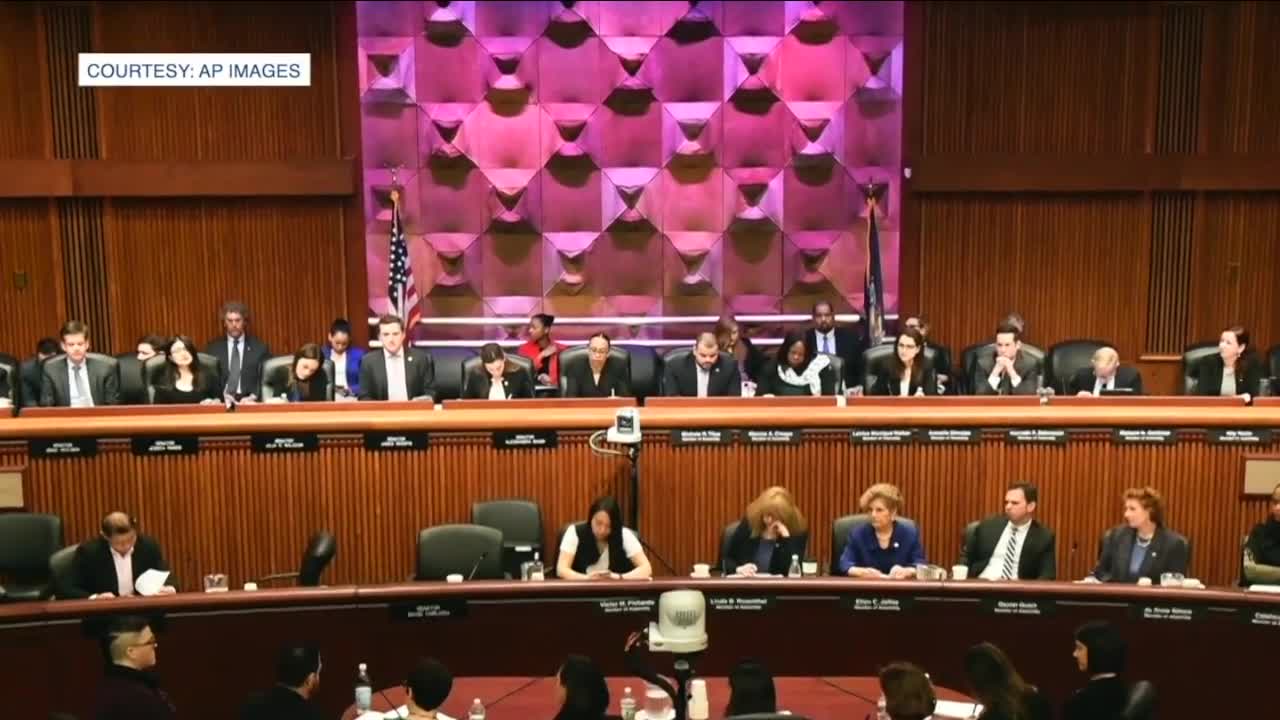BUFFALO, N.Y. (WKBW) — It’s been six years since Elias Farah of Buffalo came forward to report sexual harassment and retaliation allegations against his boss, then Cheektowaga Assemblywoman Angela Wozniak.
After he made his allegations public, Farah says he was victimized, retaliated against and blacklisted by Wozniak and her party.
“We all have a very similar story,” he said. “It always starts with someone in power.”
Farah says, now six years later, his case is still playing out in the courts, and taxpayers are footing the legal bills for a member of government who no longer serves.
“Politicians their attorneys are paid for,” he said. “Completely paid for by the government to an unlimited defense.”
He says this is one of the reasons sometimes, victims don’t come forward.
“For a victim to come forward it is really difficult because they don’t have that same protection,” he said.
Farah says often times, when a victim tries to come forward they are shamed by many who are behind the accused.
Farah is part of a group in Albany called the Sexual Harassment Working Group. It’s made up of victims who experienced sexual harassment while serving in New York Government.
The group has helped lobby for significant changes to the New York Law as it relates to sexual harassment in the workplace.
In 2019, language in the law was changed as a result of this group’s efforts. Before, sexual harassment in the workplace had to rise to the level of “severe and pervasive”. The 2019 law changed that language to “severe or pervasive.”
“It can either be something that is severe or something that happens repeatedly,” Farah said. “Every year we look at the agenda that helps this from happening to anyone else.”
He says his group will not stop.
Farah says the group continues to work toward more reforms, making it easier for staffers to come forward.
“There’s no accountability in Albany for anyone, because essentially you’re answering to your own colleagues,” he said on investigations. Farah supports a full and independent investigation or any allegations, clear from politics.
Right now, the New York Attorney General’s Office defines workplace sexual harassment as the following:
Sexual harassment may be verbal, visual and/or physical, including:
• Sexually offensive remarks or jokes;
• Unwanted touching or groping;
• Coerced sex acts;
• Requests for sexual favors of a sexually suggestive nature (e.g., asking employee to dig coins out of a supervisor’s pants pocket);
• Displaying pornographic images;
• Comments (either complimentary or derogatory) about a person’s gender or sexual preferences;
• Sexual gestures (e.g., pantomiming sex acts).
As of August 2020, the state says the statute of limitations to report an incident has been extended from one to three years.


